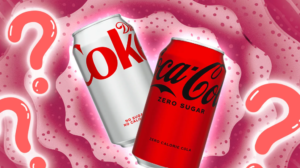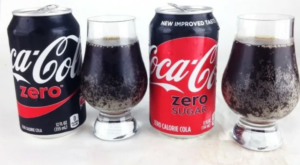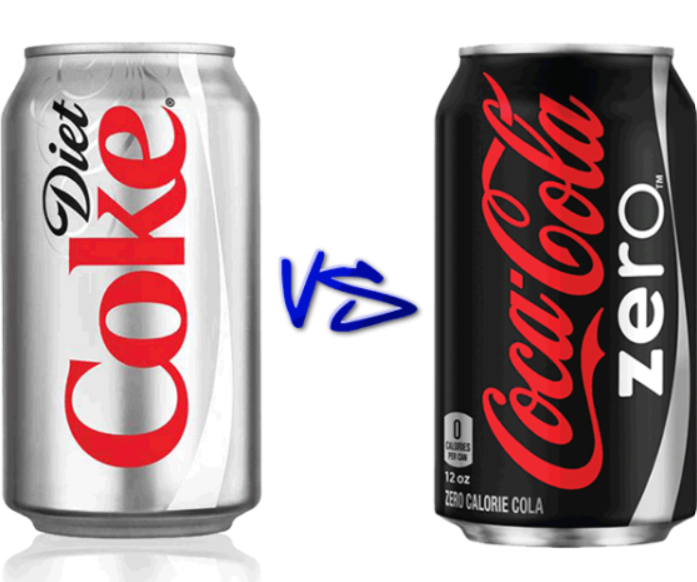Coca-Cola, a global leader in the beverage industry, has created numerous products to cater to the diverse tastes and health preferences of consumers. Among their sugar-free options, Diet Coke and Coca-Cola Zero Sugar stand out. While both are marketed as low-calorie alternatives to regular Coke, they have distinct differences in ingredients, taste, and target audience. This article delves into the key differences between Diet Coke and Coke Zero Sugar, examining their history, formulation, flavor profiles, and marketing strategies.
Historical Context and Market Introduction
Diet Coke: Diet Coke, introduced in 1982, was Coca-Cola’s first sugar-free cola. It was a revolutionary product aimed at consumers who wanted to enjoy the taste of Coke without the calories. Its launch marked a significant milestone in the beverage industry, tapping into the emerging health-conscious market of the 1980s. Diet Coke quickly gained popularity and became a staple for those seeking a lighter option.
Coke Zero Sugar: Coca-Cola Zero, later rebranded as Coca-Cola Zero Sugar, was launched in 2005. It was created to offer a sugar-free cola that more closely resembled the taste of the original Coca-Cola Classic. The rebranding to Coca-Cola Zero Sugar in 2017 aimed to emphasize its zero-sugar content while aligning it more closely with the iconic Coca-Cola brand. This product was designed to appeal to younger consumers and those who preferred the classic Coke taste but without sugar.
Ingredients and Formulation
The primary difference between Diet Coke and Coke Zero Sugar lies in their ingredient composition and formulation.
Diet Coke: Diet Coke’s formulation is unique and does not aim to replicate the exact taste of Coca-Cola Classic. Its ingredients include:
- Carbonated water
- Caramel color
- Aspartame (a low-calorie sweetener)
- Phosphoric acid
- Potassium benzoate (to protect taste)
- Natural flavors
- Citric acid
- Caffeine
Aspartame, the main sweetener in Diet Coke, gives it a distinct taste that sets it apart from regular Coke.
Coke Zero Sugar: Coke Zero Sugar, on the other hand, is formulated to mimic the taste of Coca-Cola Classic as closely as possible. Its ingredients include:
- Carbonated water
- Caramel color
- Phosphoric acid
- Aspartame and acesulfame potassium (another low-calorie sweetener)
- Potassium benzoate (to protect taste)
- Natural flavors
- Potassium citrate
- Caffeine
The combination of aspartame and acesulfame potassium in Coke Zero Sugar helps achieve a flavor profile that is closer to that of Coca-Cola Classic.

Flavor Profile and Taste
Taste is a significant differentiator between Diet Coke and Coke Zero Sugar.
Diet Coke: Diet Coke has a distinct, crisp taste with a slightly more acidic flavor compared to regular Coke. The use of aspartame as the sole sweetener contributes to its unique flavor profile, which some consumers describe as lighter and less sweet than Coca-Cola Classic.
Coke Zero Sugar: Coke Zero Sugar is designed to taste more like Coca-Cola Classic. The blend of aspartame and acesulfame potassium creates a taste that is sweeter and more robust, closely resembling the original formula. This makes it a preferred choice for those who enjoy the classic Coke taste but want to avoid sugar.
Marketing and Target Audience
Coca-Cola has strategically positioned Diet Coke and Coke Zero Sugar to appeal to different demographics and preferences.
Diet Coke: Initially marketed towards health-conscious consumers, particularly women, Diet Coke has maintained its appeal through targeted advertising that emphasizes its low-calorie content and modern lifestyle appeal. The brand often collaborates with fashion and lifestyle influencers, reinforcing its image as a chic, health-oriented choice.
Coke Zero Sugar: Coke Zero Sugar is marketed more towards younger consumers, including men, who want the taste of Coca-Cola Classic without the sugar. The branding emphasizes its taste similarity to regular Coke and often features bold, edgy marketing campaigns. Sponsorships in sports and music events are common, aiming to position Coke Zero Sugar as a trendy and energetic beverage choice.

Nutritional Information and Health Impact
From a nutritional standpoint, both Diet Coke and Coke Zero Sugar are very similar, offering a no-calorie alternative to regular Coke.
Diet Coke:
- Calories: 0
- Total Fat: 0g
- Sodium: 40mg
- Total Carbohydrates: 0g
- Sugars: 0g
- Protein: 0g
- Caffeine: 46mg per 12 fl oz
Coke Zero Sugar:
- Calories: 0
- Total Fat: 0g
- Sodium: 40mg
- Total Carbohydrates: 0g
- Sugars: 0g
- Protein: 0g
- Caffeine: 34mg per 12 fl oz
While both drinks are calorie-free, they contain artificial sweeteners, which are often a topic of debate regarding long-term health effects. However, regulatory bodies like the FDA consider these sweeteners safe for consumption within the established daily intake limits.
Consumer Preferences and Market Performance
Consumer preferences between Diet Coke and Coke Zero Sugar can vary widely based on individual taste and brand loyalty.
Diet Coke: Diet Coke has a loyal following, particularly among long-time consumers who prefer its unique taste. Its established presence in the market and consistent branding efforts have maintained its popularity over the years.
Coke Zero Sugar: Coke Zero Sugar has gained a strong foothold, especially among younger consumers and those who want a taste closer to Coca-Cola Classic. Its rebranding efforts in 2017 helped clarify its position in the market and boosted its appeal.
Conclusion
In conclusion, while Diet Coke and Coke Zero Sugar are both sugar-free alternatives to Coca-Cola Classic, they cater to different taste preferences and demographic segments. Diet Coke offers a distinct flavor with a crisper taste, making it a favorite among those who prefer its unique profile. Coke Zero Sugar, on the other hand, appeals to those who desire the classic Coke taste without the sugar, thanks to its carefully crafted formulation.

